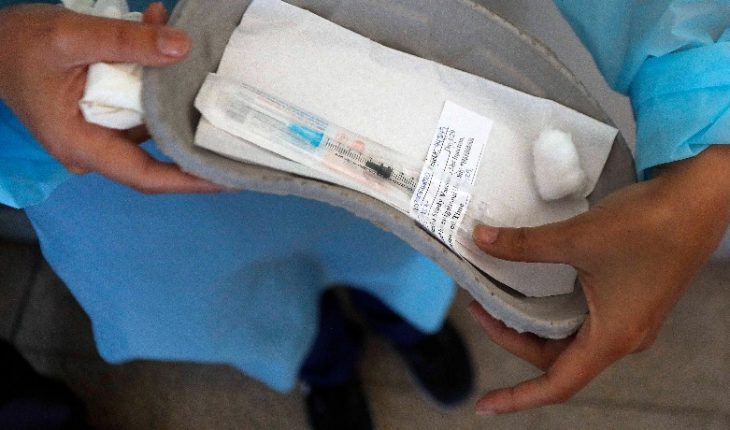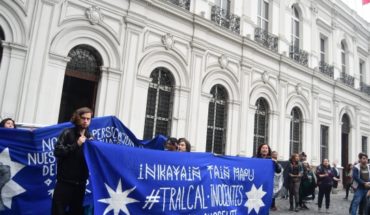At least a dozen countries, including Germany, France, Italy and Spain, have temporarily discontinued the use of the AstraZeneca coronavirus vaccine after reports last week that some people in Denmark and Norway who received the treatment developed clots, although there is no evidence that the injection was the cause of this. On Monday, Norwegian authorities reported that a person receiving the AstraZeneca vaccine died. Although last week they announced that they will continue to use this vaccine, german authorities indicated on Monday that they will temporarily discontinue use on the advice of the regulatory body. French President Emmanuel Macron announced that his country will also suspend it, while Spain announced a two-week break. In Italy, the regulatory body also announced a temporary suspension, only as a precaution. Denmark was the first to discontinue use of the AstraZeneca vaccine last week when it received reports that some people suffered clots. Authorities there warned that the suspension would last at least two weeks while the matter was investigated, although they clarified that “so far, there is no evidence of a causal link between the vaccine and blood clots.” Soon after, Norway, Iceland, Thailand and congo did the same. On Saturday, Norway authorities reported that four people under the age of 50 who had received the AstraZeneca vaccine had an unusually low number of blood plates, which could cause bleeding. On Sunday, Ireland and the Netherlands also discontinued the use of this treatment. In all of the above countries, however, health authorities clarified that they were taking this measure strictly as a precaution. Still, many other countries continue to use the vaccine. In response to the suspensions, AstraZeneca indicated that it examined the data of 17 million people who received it across Europe and that “there is no evidence of an increased risk” of blood clots, in any age group or in either sex. The European Medicines Agency stated that “there is no indication that vaccines caused these conditions”, and that the proportion of people who suffered from blood clots and received the AstraZeneca vaccine is no greater than those who did not receive it. In Britain, where 11 million doses of the AstraZeneca vaccine have been applied – more than any other country – reports have emerged that 11 people suffered clots. But in none of the cases could it be proved that the cause was the vaccine. Some experts point out that because vaccination campaigns are being conducted first for the most vulnerable, it is very likely that these people are already suffering from previous ailments, and therefore it becomes difficult to verify that the vaccine is responsible for something that happens afterwards. Whenever a massive vaccination campaign is carried out, it is common for some people to have an adverse reaction, simply because they are millions of people and each has a different organism capable of reacting differently. The vast majority of these problems have nothing to do with the vaccine, but because it is in an experimental stage, experts are required to investigate any possible adverse side effects. For her part, the world’s leading scientist recommended monday that countries continue to use the AstraZeneca vaccine for now despite concerns about clots in some people who have received it. Dr. Soumya Swaminathan said UN health agency officials “don’t want people to panic,” although the use of the vaccine is being closely followed. He added that a review was underway that could produce recommendations on Tuesday. Swaminathan noted that some 300 million doses of several coronavirus vaccines have been given to people around the world, and “is there no documented death that has been linked to a COVID-19 vaccine?. He said the rates at which blood clots have occurred in people who received the AstraZeneca vaccine “are in fact lower than would be expected in the general population.”
translated from Spanish: Why did countries stop the AstraZeneca COVID vaccine?
March 17, 2021 |





